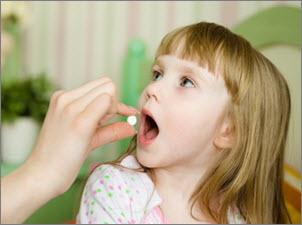Remember the year 2000 film titled The Perfect Storm starring George Clooney and Mark Wahlberg? It chronicles the story of the commercial fishing boat the Andrea Gail, which finds itself caught between powerful weather fronts which the crew underestimates.
A similar situation — although in a very different vein — has resulted in considerable overuse of psychiatric medication in children. First, drug companies found themselves floundering when it came to reaching more and more new customers. Second, the logical place to go was to child and adolescent populations to expand their sales reach. Young people made perfect targets — convince physicians that these often very powerful psychiatric drugs could alleviate children of their mental woes, and at the same time, suggest to parents that such drugs could make life easier for their children and them as well. Accomplish these things and you’ve got a customer for life. The key group targeted was primary care physicians (psychiatrists not so much as they were already prescribing these drugs and there are too few of them). With a big gulp at first, primary care then began to swallow the false narrative that typical childhood problems were something “mental” in nature, underdiagnosed and treatable with a pill, even as early as pre-school.
 This is just not true. As children morph through the life cycle, they change considerably in response to environmental and developmental influences and thus should be evaluated with proper care and due diligence. And this can’t be done in 7-10 minutes mostly via parental report or through information obtained from collateral sources which aren’t qualified to assess and diagnose in the first place. There is such a thing as an overwhelmed teacher who recommends that parents consider medication for their child, when the real problem is one of classroom management. I can’t fathom reaching a conclusive diagnosis in 10 minutes, much less make a recommendation that the child be placed on medication.
This is just not true. As children morph through the life cycle, they change considerably in response to environmental and developmental influences and thus should be evaluated with proper care and due diligence. And this can’t be done in 7-10 minutes mostly via parental report or through information obtained from collateral sources which aren’t qualified to assess and diagnose in the first place. There is such a thing as an overwhelmed teacher who recommends that parents consider medication for their child, when the real problem is one of classroom management. I can’t fathom reaching a conclusive diagnosis in 10 minutes, much less make a recommendation that the child be placed on medication.
The white coat conveys considerable power. Parents enter doctors’ offices intimidated and ill-prepared, accepting recommendations from doctors practicing outside their area of expertise as gospel. Many of them develop white-coat brain-lock, forgetting the questions they wanted to ask because they didn’t write them down or there is such a flurry of activity in the office, they don’t get around to it. They don’t invest in becoming fully-informed consumers and seek second opinions before consenting to having their child medicated.
So here’s how to proceed properly when it comes to deciding upon psychiatric medication for children — with a careful and watchful eye on arresting misuse:
- Does the child have a clinical presentation that squares with an FDA-approved indication for the medication under consideration?
- Has the medication been utilized with children of similar age and gender?
- Do the child’s problem issues affect personal, social and school functioning? If so, have any other intervention strategies been considered in lieu of medication?
- Are the child’s problems occurring in multiple milieus and observed and reported on by other individuals within and outside the nuclear family?
- What others stressors are impinging upon or driving the problem to continue?
- What’s the medication’s track record for the diagnosis reached? Does it stand up to clinical scrutiny?
- How about the medication’s side effects? Might some of them be long-term, intractable and induce possible lifelong physical complications?
- If the thrust of your work is with children, if your child had a similar problem, how would you approach the medication issue?
The unanswered question, until science can offer definitive confirmation, (which is way off in the future and quite possibly never) is this: What happens when a child is exposed to a brain bath of chemicals from a young age, continuing on through adulthood?
For certain, children with bona fide, identifiable problem issues that, to the best of our clinical knowledge, are biologically driven and alleviated by drugs that have been vigorously tested across genders and a broad swath of age ranges should be medicated. And there is no question regarding the validity of medication use in instances of extreme aggressiveness, destruction of property or outright dangerousness — to self or others. But medication should never be a reflexive, knee-jerk action.
A final few words to deliver to parents: Tell them to never accept a prescription after merely a cursory evaluation. And if the prescriber won’t entertain other alternative treatment options, they should not walk, but run away, and FAST!
Attribution Statement:
Joe Wegmann is a licensed pharmacist & clinical social worker has presented psychopharmacology seminars to over 10,000 healthcare professionals in 46 states, and maintains an active psychotherapy practice specializing in the treatment of depression and anxiety. He is the author of Psychopharmacology: Straight Talk on Mental Health Medications, published by PESI, Inc.
To learn more about Joe’s programs, visit the Programs section of this website or contribute a question for Joe to answer in a future article: joe@thepharmatherapist.com.